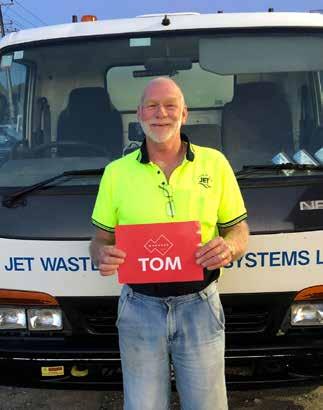
2 minute read
The Green Spot - Eco Tip of the Month
Global warming is a hot topic – excuse the pun. But what you may not know is that reducing your food waste may be a very effective way for you to combat climate change, while of course saving you money. According to the U.N. Food and Agriculture Organisation, 30 percent of food is wasted globally across the supply chain, causing 70 billion tons of preventable greenhouse gases to be released into the atmosphere. If food waste were a country, it would come in third after the USA and China in terms of impact on global warming.
Food waste that decomposes in landfills releases methane, a greenhouse gas that is at least 28 times more potent than carbon dioxide. Food that is composted can be used as fertiliser, but think of all the emissions generated just from the creation and supply of the food and its packaging, which include carbon dioxide, methane, nitrous oxide and hydrofluorocarbons. By throwing away half a lasagne, half of the emissions that resulted from producing, shipping, storing, and cooking are also wasted.
Advertisement
According to studies done in New Zealand, the average rubbish bin contains 45 per cent food scraps. In terms of reducing CO2 emissions, eliminating this food waste would have the same effect as taking 118,107 cars off the road for a year or planting 130,390 trees.
Ways to prevent food waste is to plan your meals ahead and only shop for what’s on the list, properly store, use and share leftovers and embrace “ugly food” – fruits and vegetables that are blemished or not perfectly shaped. These signals result in lower demand along the supply chain and represent one of the greatest possibilities for individuals, companies and communities to contribute to reversing global warming, while increasing economic benefits and preserving threatened ecosystems.
Hayley Crawford
theMillwatermag TRADIE OF THE MONTH Maddren Homes
Making sure it All Goes Down the Drain
Kevin Maney from Jetwaste Drainage is an expert at making sure everything goes down the right drain. It sounds easy to get storm water and sewage correctly into the separate drainage systems, but a lot of the time it’s not that simple. Recently, there have been a number of complex projects that we have worked on together that have involved complicated site and traffic management. Kevin, with his wealth of experience, can-do attitude and skilled system planning, always delivers for us when we need it – time after time.
Thanks for all your commitment and hard work, Kevin. Enjoy your voucher from our proud sponsor Western ITM.











